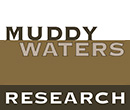The Six Rules of China Due Diligence
Below are six tips to keep you prosperous in the Year of the Rabbit (a.k.a. the Six Rules of China Due Diligence):
Rule #1 – Approach the company as a potential customer does.
You want to see what the China side customers see. Fraudulent companies have far less confidence that they can fool a Chinese company in their industry than they do about fooling a starched shirt analyst. Moreover, they’re usually less willing to take legal risks in their home market (China) than they are in the United States.
The key to approaching as a potential customer is speaking the trade language, and learning the business conventions. If you seem like a waste of time to a salesperson, you won’t get far.
Rule #2 – Take all company-provided introductions with a grain of salt.
When companies set up meetings or conversations between you and their suppliers or customers, take them with a grain of salt. The people on the other side owe you no duty to be candid. You have no legal – or even social – recourse to them. In a country where a lot of managers earn less than $500 per month, it’s not hard for an unscrupulous company to buy someone’s loyalty for the duration of a meeting or phone call.
You should instead rely on your own networks to help you understand the company and industry. If you don’t have those networks, you unfortunately shouldn’t be making investment decisions in China by yourself.
Rule #3 – Try to construct your own fraud scenario.
At some point in evaluating every investment, you should stop and ask yourself how you could have staged everything you’ve been shown or done with the company. It’s good for American investors to practice this mentality because it makes us less credulous. More importantly, this kind of thinking makes clear how surprisingly simple measures (e.g., switching factory signs before you arrive, painting old machinery) can be so effective in fooling the credulous investor.
Rule #4 – Forget about the paper. Focus on the operations.
In today’s world where you can buy a competent color printer for less than $200, it’s hard to understand why investors place so much faith in bank statements, invoices, and contracts. China’s deal making world abounds with stories of forged bank statements and other documents leading to disastrous deals. Unfortunately, most auditors apply the US audit playbook in China – reviewing and taking documents at face value.
Big name auditors aren’t that well equipped to protect investors against managements who are determined to commit fraud. The following blog does a nice job of emphasizing this point: http://www.terryteo.com/2010/03/how-solid-are-audits-by-reputable-firms.html. Not only is this true in China, but it’s been shown to be true in Europe (Parmalat), the US (Enron) and throughout the developing world. Because China’s accounting system mandates a large amount of paper invoices, determined management can take advantage of the system to create a daunting blizzard of forged paper that a reputable auditor cannot easily see through.
Instead, you have to look at the operation itself. How much does the output seem to be, how much material is moving into and out of the factory, does the office seem to be a hive of activity, how many employees can you count, what is the square footage of the facilities? These are all basic questions one should concern themselves with during site visits. And it pays to visit two to three (or more) times – a good fraudster can put on a show, but they’re unlikely to be able to do it the same way each time. Watch for the subtle differences.
Ultimately if you cannot find a good way to measure the company’s sales or productivity (as in the case of a service company), you should think carefully about proceeding with the investment.
Rule #5 – Always speak with competitors.
Competitors with real businesses can usually tell you one of two things about a fraudulent competitor – either that it’s obscure (sometimes the “competitor” is hearing about the company for the first time); or, that they know it’s a fraud. Many competitors will be reluctant to speak openly at first about a fraudulent competitor if they know you’re a potential investor in the fraudulent company. However, if you’re a potential customer who is shopping around for a vendor, it can be a different story.
Rule #6 – Do not delegate.
A lot of experienced China investors have stories about subordinates who colluded with a target company to attempt (and sometimes succeed) to defraud the investor. Be attune to the dichotomy between the investment funds at stake and the income / wealth of the people on whom you rely for judgment.
Clearly the rules of the game are different in China than in the US. There are many solid companies and managements in China. However, unscrupulous people know that most US investors aren’t prepared to deal with a full-fledged attempt to defraud them in China. Above and beyond all else, ask questions and never accept an answer at face value.
Muddy Waters, LLC wishes you prosperous investing in the Year of the Rabbit!

13 Responses to The Six Rules of China Due Diligence